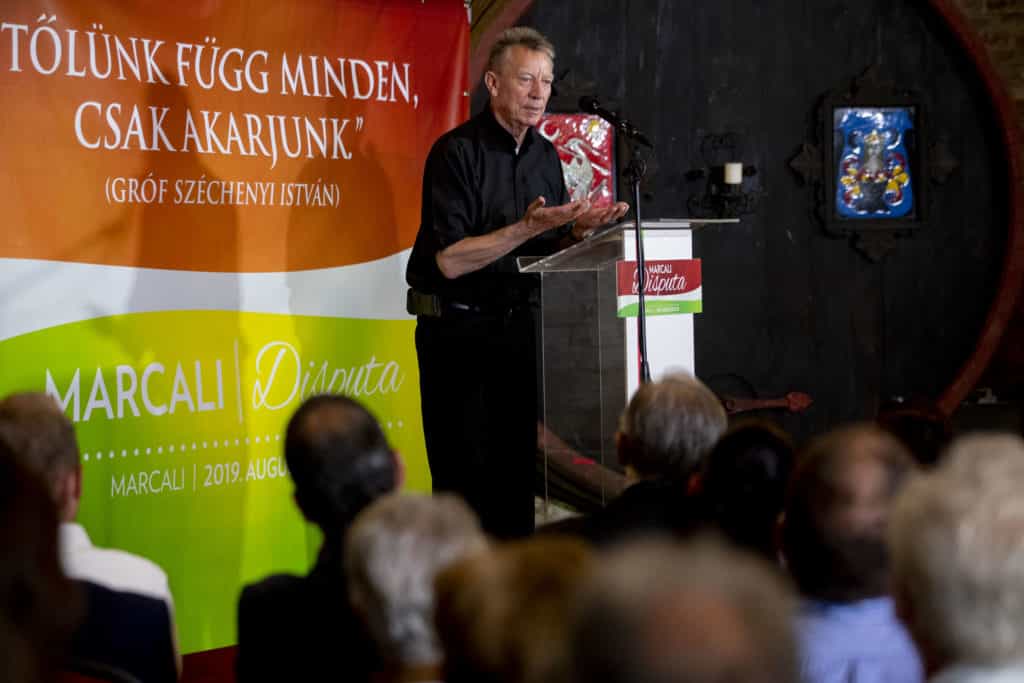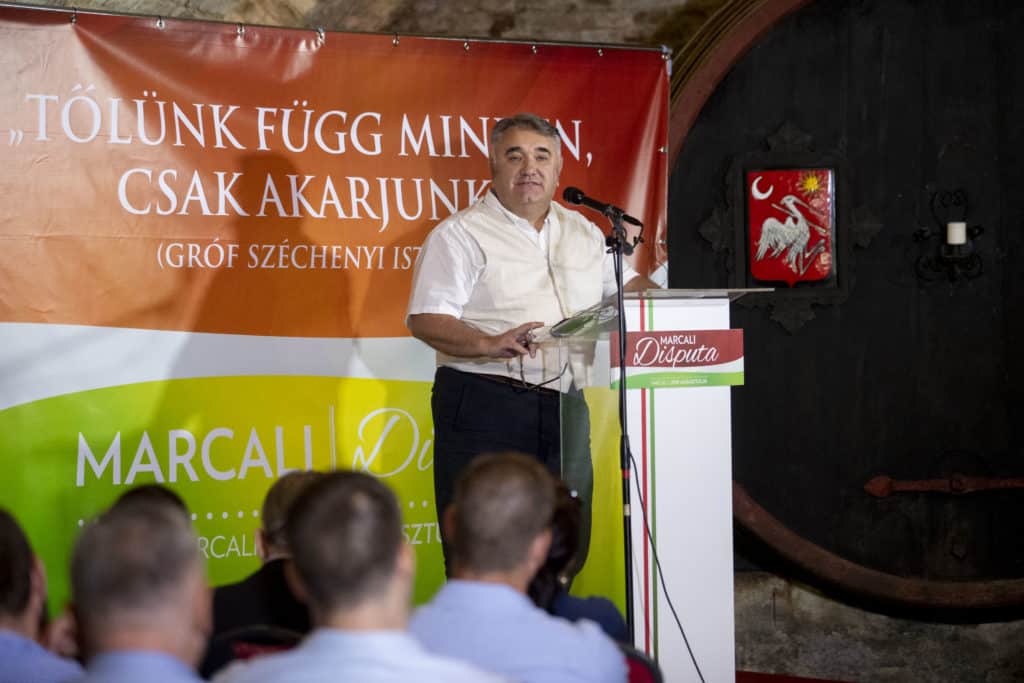Is there a need for a moderate, right-wing political movement in Hungary?
This was the main question of the “Marcali Disputa,” a meeting of Hungarian conservative intellectuals. They agreed that the once-democratic Fidesz is no longer representing moderate right-wing voters, and there is a great need for a party standing up for such values.
According to the organisers of the event, their goal was to find a moderate conservative answer to the challenges of the Hungarian political situation and the 21st century.
Miklós Beer, bishop emeritus of Vác, talked about the political responsibility of religious people. He highlighted that it is not Christian politics that only uses religion and faith for its purposes. He said that he endured serious attacks during the migration crisis when he accepted African migrants into his home. However, they told him that they were fleeing their homes because local multinational companies polluted the streams and rivers there, and thus cut them from freshwater.
He added that
if the Orbán-regime was really Christian
it would turn to such questions very differently than it does today.

He said that during the Socialist era, he was thinking about how good it would be if the church could function as independently as ancient Christian communities did. But today, churches are far from being independent because
the government can control them through the money it gives them.
János Stummer, one of the vice-chairman of Jobbik, said that politicians need a moral compass in times of hard political fights. Therefore, he asked those present to help them remain on the morally right road. Miklós Beer replied that he takes on the task with pleasure.
Miklós Király, former dean of the Faculty of Law at Eötvös Loránd University, said that ordinary citizens could easily feel lost in the maze of the many parties today. He said that the current government gladly calls itself conservative, but in reality, they are not. He added that Fidesz only monopolises right-wing notions and manner of speech.
The advisor of former Hungarian president Ferenc Mádl stressed that there is a turmoil on the sides of the political scale in Hungary, but
there is nobody in the centre.
This means that there is a great need for a moderate, right-wing, conservative alternative. Furthermore, this is important because otherwise, the voters will choose an extreme leftist movement.
According to him, this moderate right-wing force should not build an illiberal state, should respect the freedom of science and research, should not see Moscow as a role model, and while protecting the borders of Hungary, it does not create fear and hatred.
Dr István Teplán, economist and former vice-president of the Central European University, said that the Orbán-era is becoming more and more autocratic and would like to dominate all segments of public life. The media is centralised, critical voices are silenced, and
the Hungarian economy is dominated by the political leadership.

He said that Jobbik, as a people’s party, can only become the engine of a civil movement formed against the autocratic regime of Fidesz. He added that he was convinced by the party’s wage union program, which he called
the only reasonable initiative of the 2018 parliamentary election campaign.
Tamás Sneider, president of the party, stressed the importance of social issues and added that those who steal cannot be patriotic because they steal the goods of the nation.
Péter Jakab, leader of the party’s parliamentary group, said that Jobbik has to represent those workers who, after 12 hours of work, are too tired to deal with the issues of public affairs. He added that Jobbik has to replace hatred caused by the Orbán government with solidarity.
Some further discussion topics covered question like would Hungary ever become a multicultural country thanks to the emigration generating labour shortage and the influx of many e.g. Ukrainian or Turkish nationals or is it inevitable for Hungary to remain the home of cheap labour force resulting in low salaries.
Moreover, the participants talked about the relationship between conservatism and environment protection and whether it is Christian to let Hungarians get less for the same job compared to French or German citizens.







